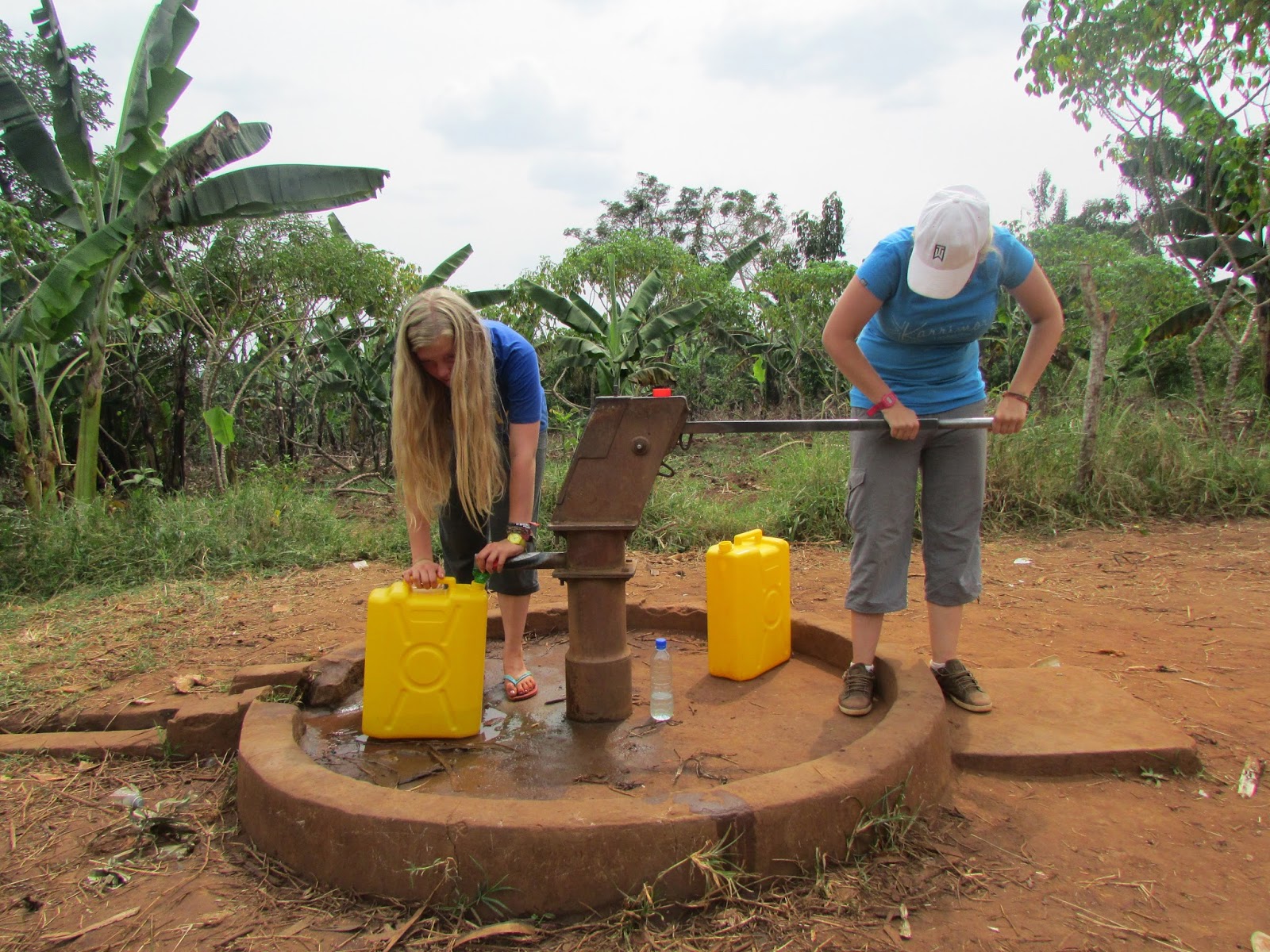 |
Micah 6:8.
Grace. 20. I lived in Uganda for 10 months but now I'm back in England. And I'm passionate about fighting for justice and development in this world.
"I always wondered why somebody didn't do something about that, then I realised, I am somebody."
Monday, 29 December 2014
Tuesday, 25 November 2014
my guest blog on koko!
I recently wrote a blog post on mental health for the amazing website koko.
Have a look:
www.thekokostory.com
Have a look:
www.thekokostory.com
Thursday, 30 October 2014
A day like today..
Whenever I'm having a bad day at uni, or I'm struggling to get work done, or I'm doubting whether it was even a good idea for me to go to university... I have a scroll through my Uganda photos. Now this isn't all together relevant for my blog but I'd just like to share some photos with you, of my wonderful children who I love so dearly. Of the people I met and worked with in Uganda who am I doing all of this for. They keep me going.
To see them all in school, and finishing school. To see them properly fed and with a tap in their houses that brings them clean, safe water.
To see them with good, sturdy shoes on their feet and comfortable clothes and big beaming smiles (which they already have!).
To see them dreaming of big futures full of excitement and discovery.
Monday, 27 October 2014
Friday, 17 October 2014
Tuesday, 14 October 2014
Bedtime
Moving away from home is always an adventure and one I'm not too unfamiliar with. It always reminds me of the little home comforts that I was used to before I left. And I would be lying if I said that one of those wasn't my bed! Now I was never really a bed snob until I was surprised by my wonderful family with a wonderful new bed on my return from Uganda. After 10 months of living fairly basically, my new double bed felt like I was sleeping on the clouds.
Two months later and I was once again packing my things to start university. We all know that student accommodation doesn't pride itself on luxury but my little room is lovely and all the photos on my wall are a little reminder of home. My flatmates have become my friends and I wouldn't want to live anywhere else. However I have found myself complaining about my bed, dreaming of my mattress of clouds back home, secretly admitting to myself that I actually miss it more than is probably normal.
One day, I remembered an article that I'd seen online about bedrooms from around the world. The photojournalist had taken a series of photos showing a child, and then their bedroom. The children came from Brazil, Scotland, The West Bank, Nepal, USA and some others. Here are some of the photos...
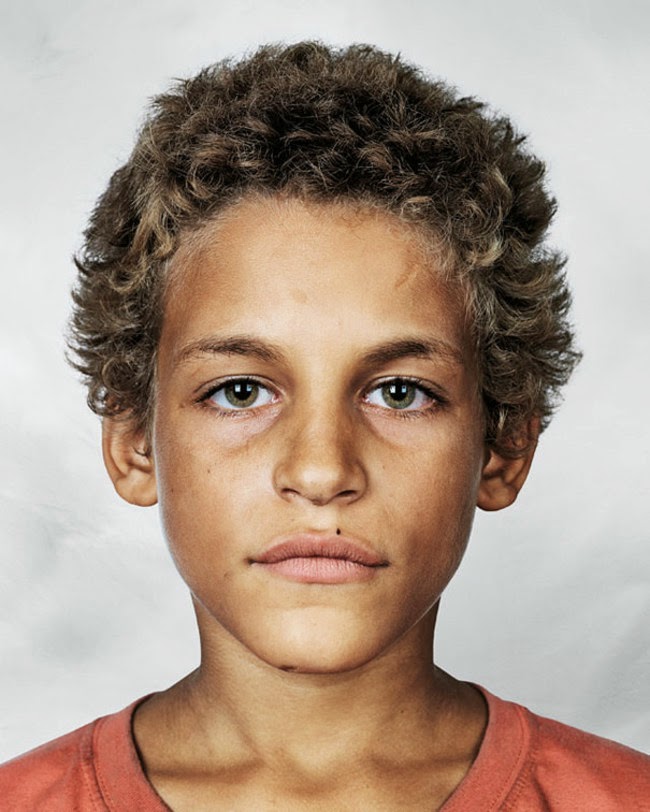 |
| Alex, 9, Rio de Janeiro, Brazil |
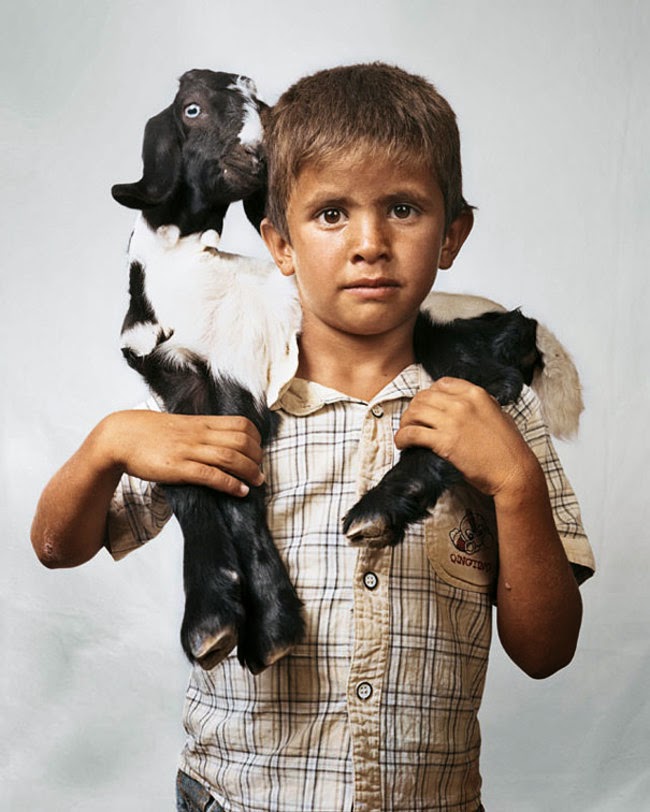 |
| Bilal, 6, Wadi Abu Hindi, The West Bank |
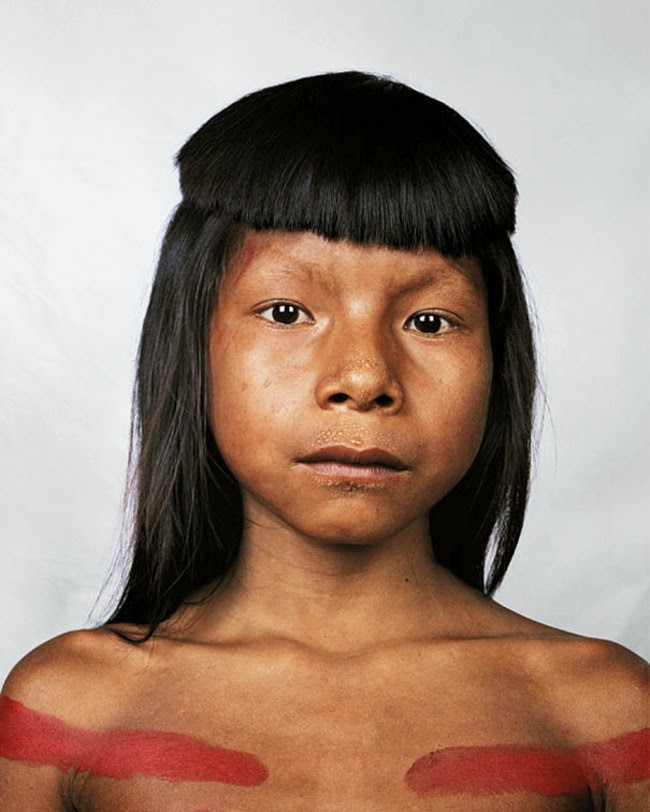 |
| Ahkohxet, 8, Amazonia, Brazil |
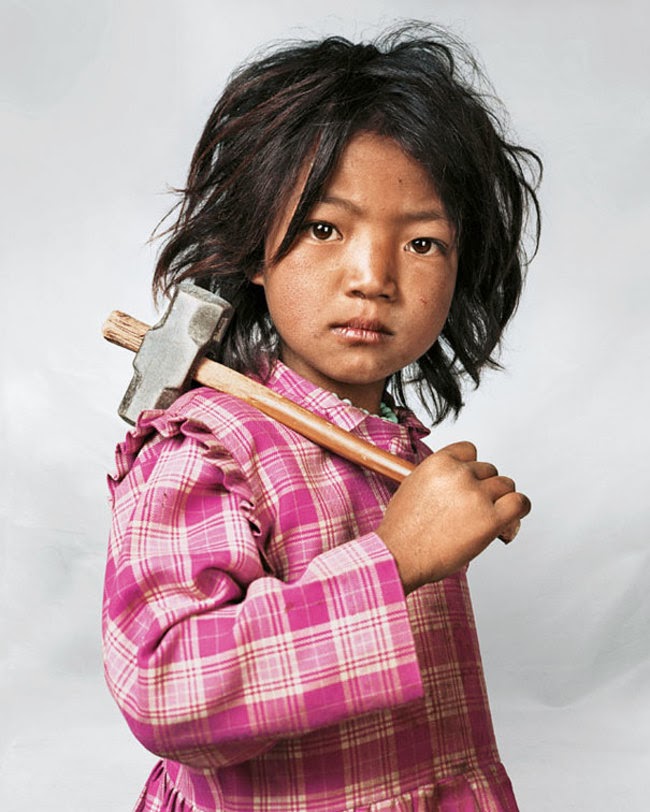 |
| Indira, 7, Kathmandu, Nepal |
You can see the full article here:
http://news.distractify.com/culture/childrens-bedrooms-across-the-world/
It's a real eye-opener. We see our beds as a place of comfort and safety, but I imagine that this isn't the case for the majority of these children. When I first saw it I swore I would never again complain about my room. But as with most promises to myself, I soon forgot about it.
Then I met Gladys and Edith.
These two little sisters came along to the school we taught at in Uganda.
 |
| Gladys (yellow), Edith (green) and us gappers. |
 |
| Gladys |
I will tell their full story one day.
Every time I complain about my bed, or my room, or a bad night's sleep, I think of these two. Without fail. When we first met Gladys, my friend Anna went to visit her house. When they arrived they found a room with a thin foam mattress on the floor. That was the bed of their pregnant mother.
Where did Gladys and Edith sleep? On a carrier bag. One each.
A plastic bag that we use to carry home our food shopping and then dispose of without a thought. But to Gladys, that was her bed.
When I first heard about the conditions the two girls were living in I was brought to tears. And even now thinking about it makes me emotional.
Thankfully, things are looking up for these two precious lives. They both go to school regularly and have lunch provided for them. Their mother is trying to set herself up with a food stall to earn an income. The charity Smile International are also helping to build a new school building for Ruth Mother Care which I am SO excited about and so thankful to God for blessing such a wonderful place.
When we count our blessings we don't usually remember our beds. They're just a given. We're always going to have somewhere warm and cosy to sleep. But maybe next time you snuggle down under your duvet you'll spare a thought for those who don't have the same luxury. This isn't a guilt trip, really it's not.
I just want to remind you how blessed you really are.
(If you want to take part in some practical help, I know that child sponsorship programmes quite often provide children with new mattresses or blankets. Smile Internationals' 'Gifts with Love' give you the opportunity to send a blanket to someone in a developing country)
Wednesday, 8 October 2014
Tuesday, 7 October 2014
Write to your MP: Recognise Palestine
Last night I attended a talk on Gaza, titled "Trauma, Grief and Resilience". It focused on the Palestine Trauma Centre and how it is helping children and families in Gaza. We were privileged to have Dr Altawil as a guest speaker. Dr Altawil is a Palestinian doctor and founded the PTC.
I had been trying to follow the news on Israel and Gaza, but honestly, I knew a shamefully small amount about the situation. I did a bit of research before going to the talk so I wouldn't feel too out of my depth. However the speakers were really informative and helpful and I kept up! If you feel like you don't really know anything about it, I suggest you spend a bit of time looking into it!
The Palestine Trauma Centre works in the heart of the communities in Gaza. They believe in therapy through play and they try to lift the spirits of the children. As soon as the bombardment stops, the team are out on the streets with parachutes, hoops and balloons, interacting with the children and trying to return their childhoods to them, despite the devastation that surrounds them.
Find the PTC on Facebook: https://www.facebook.com/PalestineTraumaCentreUk?fref=ts
We sit at home here in the UK and we wonder how we can help. We see the devastating images on the news and hear the awful stories and feel helpless. However on 13th October the British government will vote on whether or not to recognise Palestine as a state. I'd like to encourage you to write to your local MP and ask them to attend this vote, and vote to recognise Palestine.
The Palestine Solidarity Campaign have a letter already written up for you, all you need to do is enter your postcode and it will guide you through writing to your MP.
http://act.palestinecampaign.org/lobby/Palestine
Thursday, 2 October 2014
Sorry!
Sorry I've not been posting for a few weeks! I've just started at university and I'm run off my feet with introductions and lectures and try-outs! I will post as often as I can. Thank you for clicking on my blog x
Friday, 19 September 2014
Wednesday, 17 September 2014
Tuesday, 16 September 2014
Spoken Word Piece from Dreams Of A Better Tomorrow
I met my wonderful friend Anna on my gap year. She has an inspirational passion for justice and has encouraged me on many occasions to stand up for what I believe in. She has a justice blog called 'Dreams Of A Better Tomorrow', I strongly advise that you take a read of it.
She has recorded a spoken word piece that she wrote about water.
Here it is:
Find Anna at dreamsofabettertomorrow.blogspot.com
Monday, 15 September 2014
Stuart
In March this year, I spent a week at the Kisaakye Rehabilitation Centre in Kiyunga, Uganda. The organisation works with children who have physical and/or mental disabilities and helps their families to care for them. During my week with them, I visited children with epilepsy, hydrocephalus, cerebral palsy and muscular dystrophy. If you want to read more about my week with Kisaakye Rehabilitation, here is a link to my blog post at the time:
http://gracegapyear.blogspot.co.uk/2014/03/kisaakye.html
On one of the days, we helped with their drop-in clinic. A young boy called Stuart was brought by his mother. He had cerebral palsy caused by untreated malaria. They did some physiotherapy with him and his joints had become very stiff and immobile.
I was asked to put a pair of plastic sandals on Stuart's feet so he could be encouraged to stand up. His legs were so thin and felt so fragile in my hands.
This evening I found out that Stuart has sadly passed away. I received this news with a heavy heart as I remembered working so closely with him and his mother that afternoon. My heart breaks for his mother who lovingly cared for him everyday. Stuart was in a lot of pain when he was alive and so we can rest in the knowledge that he is free from that now and at peace.
This makes clear the reality of life in a developing country when living with a disability. The struggle of poverty is made harsher by physical or mental restrictions. Money for food, school and rent is already a burden, with the addition of medicine and treatment.
The volunteers at Kisaakye Rehabilitation do an amazing job and they certainly did what they could to make Stuart more comfortable. They work entirely on donations. If you feel led to support this charity please get in contact via their Facebook page.
Rest in our Father's Heavenly Peace, precious Stuart.
Friday, 12 September 2014
#bringbackourgirls
On 15th April this year, around 230 girls were kidnapped from their school by an extremist group. The 11th September marks 150 days since their capture, and it's thought that 180 girls are still missing. Why? Why has it taken so long? Is it because they're Nigerian? Would 180 British or American girls be left for almost 5 months? It's wrong for us to measure someone's worth based on their ethnicity or nationality. Is it because they're girls? Do they not hold the same value and significance as boys? All they'd ever become is wives and mothers, so why the panic? Well, let me be the first to say that these girls are precious, and valuable, and full of so much potential.
These girls were taken against their will. The extremist militants who kidnapped them are known as Boko Haram which means "Western/Non-Islamic education is a sin". They don't believe that girls should be allowed to attend school. A woman's 'place' is the home, serving her husband and bearing him children. But maybe the real reason is because they are scared of the potential that girls hold. Educate girls and you empower them. In school, girls thrive, and they dream, and they create ambitions and ideas. Maybe the real reason is that they feel threatened by the girls. That they will rise up and show that actually, they are just as intelligent and valuable and important as boys.
However Boko Haram have robbed these 180 girls of such expression and growth. They claimed them as if they were merely a possession, like a misplaced jacket in lost property. They have stolen their voices and taken their freedom. Which is why it is so important for us to take action. In a culture of social media, our voices echo even louder. We must demand justice for these girls and their families. In Apirl, when the kidnapped occured, a campaign emerged titled 'Bring Back Our Girls'. Not long before our Facebook walls were full of 'no make up selfies' raising awareness and money for Breast Cancer Support. My friend Anna and I had seen the success of that and wanted to apply the same idea. We took photos of ourselves holding a sign bearing #bringbackourgirls and uploaded it to Facebook and Twitter.

We took photos of everyone who was round our house and encouraged our friends to get involved. Now I'm not claiming that I'm best pals with the Obamas but later that evening, Michelle Obama uploaded a photo supporting the girls. Malala Yousafzai, Dwayne Johnson and Cara Delevingne were just some of the those who shared photos showing their support.
It seemed the world was up in arms about this, and we all waited for the news that the girls had returned home. But the news never came. After a week or so, people started to forget. #bringbackourgirls was no longer trending. People stopped talking. News readers stopped reporting. The 180 missing Nigerian girls became another statistic.
But today we stand up and we say that 150 days is too long. We refuse to regard these girls as just as number. As anything less than precious girls with names and minds and lives. We ask our government to keep up the pressure on the Nigerian government, and to offer support where it is necessary. We want these girls returned home safely. We want their village returned to peace.
Bring back our girls.
You can read more about the girls and get involved with the campaign here:
www.facebook.com/bringbackourgirls
www.girlsb.org.uk/a-message-of-hope-_531
www.opendoorsuk.org/news/support
Sunday, 7 September 2014
Saturday, 6 September 2014
A Thousand Splendid Suns by Khaled Hosseini
We were waiting at the Eurostar station for our train to France when we popped into a bookshop. I spotted this book. I'd been wanting to read it for a while as we had studied Hosseini's other book 'The Kite Runner' in school and I had enjoyed it. I bought it along with 'The Kabul Beauty School'. Have any of you read any of these books?
A Thousand Splendid Suns is amazingly written and I couldn't put it down. I honestly read it in about 3 days! I've been reading a lot about Afghanistan recently and it's really intriguing reading about other cultures.
This is a heartbreaking story of two women who are victims to their gender and face oppression from their parents, husbands, communities and the Taliban. An eye opening account to the reality of life in Afghanistan during the Russian invasion and Taliban rule. The two women, Mariam and Laila, are true heroines and despite their experiences of violence, starvation, oppression and loss, they demonstrate the unceasing limits to which a mother will go out of love for her children.
One of the issues raised in this book is child marriage, and girls being married to men who are much older than they are. In the developing world in particular this is a huge problem with one in every three girls being married by the age of 18, and one in every seven by the time she is 15.
I've used this old photo of my year 10 class to demonstrate this. If we lived in a developing country, all the girls circled in red would be married by the time they were 18. All the girls circled in blue would be married by the time they were 15! They probably wouldn't have made it into this photo as they would have had to drop out of school after getting married and take up their duties as a housewife. That leaves about half of us to finish school. When you relate the statistics to your own situation, it shocks you even more. Now I am aware that some statistics about this vary, with some saying that it is 1 in 9 girls marrying by the age of 15. However my point remains the same. It shouldn't be happening. It should be 0 in 3 girls, 0 in 7 girls, no girl should be forced to marry until she is ready to make that decision herself.
I think A Thousand Splendid Suns is so compelling because as you read it, a sense of injustice stirs within you and you want to see whether the characters overcome what holds them back. You are led to question why such tragedy and oppression is allowed to happen in this world. And why they so often go unnoticed. Dismissed as 'culture' or 'tradition', people are too scared to speak out about such issues as child marriage because they feel they will offend a religion or community.
But there is a difference between tradition and oppression.
The Afghan marital practice of the bride and groom sitting side by side, and looking at each other in a mirror, is a tradition. It is a precious moment for the couple to share on their big day. However when the bride is only 13 and the mirror reveals her 45 year old husband's face, something is not right.
The Hindu tradition of the couple conducting seven circuits of the Holy Fire, is considered a witness to the vows they make to each other. It is an important part of the ceremony. However when the bride has been forced to drop out of school and give up her education, against her will, to get married, we're looking at injustice.
At Christian weddings, the guests used to throw rice over the couple (nowadays we use confetti) as a sign of fertility. But when the grains shower down on a young boy, who doesn't really know what is going on and whose parents have chosen his wife, things need to change.
Child marriage does happen to both boys and girls, however it is primarily girls who are forced to marry older men. Sometime soon I will write a whole blog on this, but for now - back to the book!
It strikes me how resilient the two main characters of the book are. They go through so much but they do not let it defeat them. I really admire their patience and I don't think I would last as long as they do in that house! I would definitely recommend this book to anyone and everyone. It really opens your eyes about life in Afghanistan. All we ever see on the news is the governments and the soldiers, however this book gives a real insight into how the people and families were affected. It makes you appreciate the freedom that we have in this country, especially in regards to the treatment of women. Go out now and get it from the library. Or find it online. Or I'll lend it to you. Just read it. (and then let me know what you thought!)
Thursday, 4 September 2014
Oceans - My Prayer
You call me out upon the waters
The great unknown, where feet may fail
And there I find You in the mystery
In oceans deep
My faith will stand
And I will call upon Your name
And keep my eyes above the waves
When oceans rise
My soul will rest in Your embrace
For I am Yours and You are mine
Your grace abounds in deepest waters
Your sovereign hand
Will be my guide
Where feet may fail and fear surrounds me
You've never failed and You won't start now
So I will call upon Your name
And keep my eyes above the waves
When oceans rise
My soul will rest in Your embrace
For I am Yours and You are mine
Spirit lead me where my trust is without borders
Let me walk upon the waters
Wherever You would call me
Take me deeper than my feet could ever wander
And my faith will be made stronger
In the presence of my Saviour
I will call upon Your name
Keep my eyes above the waves
My soul will rest in Your embrace
I am Yours and You are mine
Sunday, 31 August 2014
water water everywhere
As I scroll down my Facebook news feed I am inundated with videos of people pouring buckets of water over themselves. The current trend of the 'ice bucket challenge' is raising awareness for charities such as the ALS Association, the MND association, and Macmillan Cancer Support. It's a great way to raise awareness about these diseases and get people donating towards research and support. Some people have chosen different charities to support with their challenge, including Water Aid. One of those people was me! I was nominated for the challenge by two friends, and although I'm yet to soak myself I have donated to Water Aid. Now, please don't see this blog as a criticism of the ice bucket challenge, I think it's great that people are getting actively involved in supporting charities. However, I think it's important for us to be aware of how other people live, for us to be grateful for our water and for us to work towards safe water and sanitation for the whole world.
Our most essential human need is water. On average, people can only survive for 3 days without it. So it's pretty important, right?
But did you know that roughly 1 in 10 people across the world don't have access to clean, safe water. 1 in 10. That's crazy. The likelihood is that these people will collect their water from a lake or pond, contaminated by human and animal waste as well as other bacteria. They probably have to walk a good few miles to find it, and when they do, it's not even safe for them to use.
But they have no choice. They drink the dirty water, or they go without.
The water causes all sorts of problems for them. Every year over 500,000 children die from diarrhoea as a result of drinking unsafe water and poor sanitary conditions. Because let's face it, if they don't have access to clean water to drink and cook with, they're not going to have a hygienic, flushing toilet either. That adds up to about 1,400 children dying every day because their water has made them sick. This problem is so huge that half the hospital beds in developing countries are occupied by someone whose illness has been caused by unclean water.
This video reveals some more shocking statistics about water and sanitation. The campaign towards the end of the video is from 2012 so it's a little out of date but many of the problems are still relevant. Have a watch.
While I was living in Uganda, we were blessed to live in a house with running water. However you couldn't drink it straight from the tap, it had to be boiled first. When we went to stay in the villages, we had to go and collect our water from the bore hole daily, and that too had to be boiled before we could use it. We hated doing it, and we only had to do it for about a week at a time! It made me so angry that in this world of touchscreen technology and sports cars and 12 hour plane journeys and 900 TV channels, that people were still living without water in their homes. Some people walk up to 4 miles to fetch water, making it an 8 mile round trip, for one jerrycan of water.
Sitting on my bed in England, I can stand up and walk five steps to the tap. Five steps to instant, clean and safe water. I can choose for the water to come out hot or cold. I could leave the tap running all day long and it wouldn't run out. I remember when I came back to the UK it was one of the things I really struggled with, and still do. I still think twice about filling up a glass straight from the tap. It was a daily occurrence to see children carrying their containers on their way to the pump. As we walked down to the slums we'd often meet children we knew and would carry the jerrycans for them. It broke my heart to see their little bodies struggling under the weight. And that's often the way it is. It's normally the children's responsibility to go and collect the water. I remember one day at school we had to teach a lesson about roles within the family. We talked about mothers and fathers, before asking them about a child's role in the home. Many of their responses were 'fetching water'. To them, it's normal. Just as for our children, it's normal for them to not even have to think about where their water is coming from.
Water Aid's current campaign is focusing on girls. Girls are sometimes made to drop out of school to stay at home and do chores. Their walk to collect water sometimes takes up half the day. For teenage girls, if their school does not have decent toilet facilities then they will often drop out when they start their period. Things like this should not stop a girl from going to school. Her education is so important in providing her with the knowledge and confidence to reach her full potential.
There are lots of great water charities out there.
Water Aid is one of my favourites and if you're willing, you can donate £3 by texting 'WATER' to 70007. (Did I mention that every donation up to 9th September will be matched by the UK Government?) Also check out this page on their website: www.wateraid.org/uk/what-we-do/the-crisis/water
This isn't a guilt trip, I just want to get you thinking, and appreciating. Maybe next time you turn on the tap, or step into the shower, or fill up a saucepan, you'll spare a thought for those less fortunate than you. Instead of using tap water for your ice bucket challenge, maybe you could go down to the beach and use sea water, or collect rain water. Perhaps you could look into 'Toilet Twinning' or raising money towards a water tank. There's little things we can do to prevent the wastage of water but also to raise awareness of the struggle that people across the world face.
We have been blessed abundantly, that we may bless abundantly.
Subscribe to:
Comments (Atom)





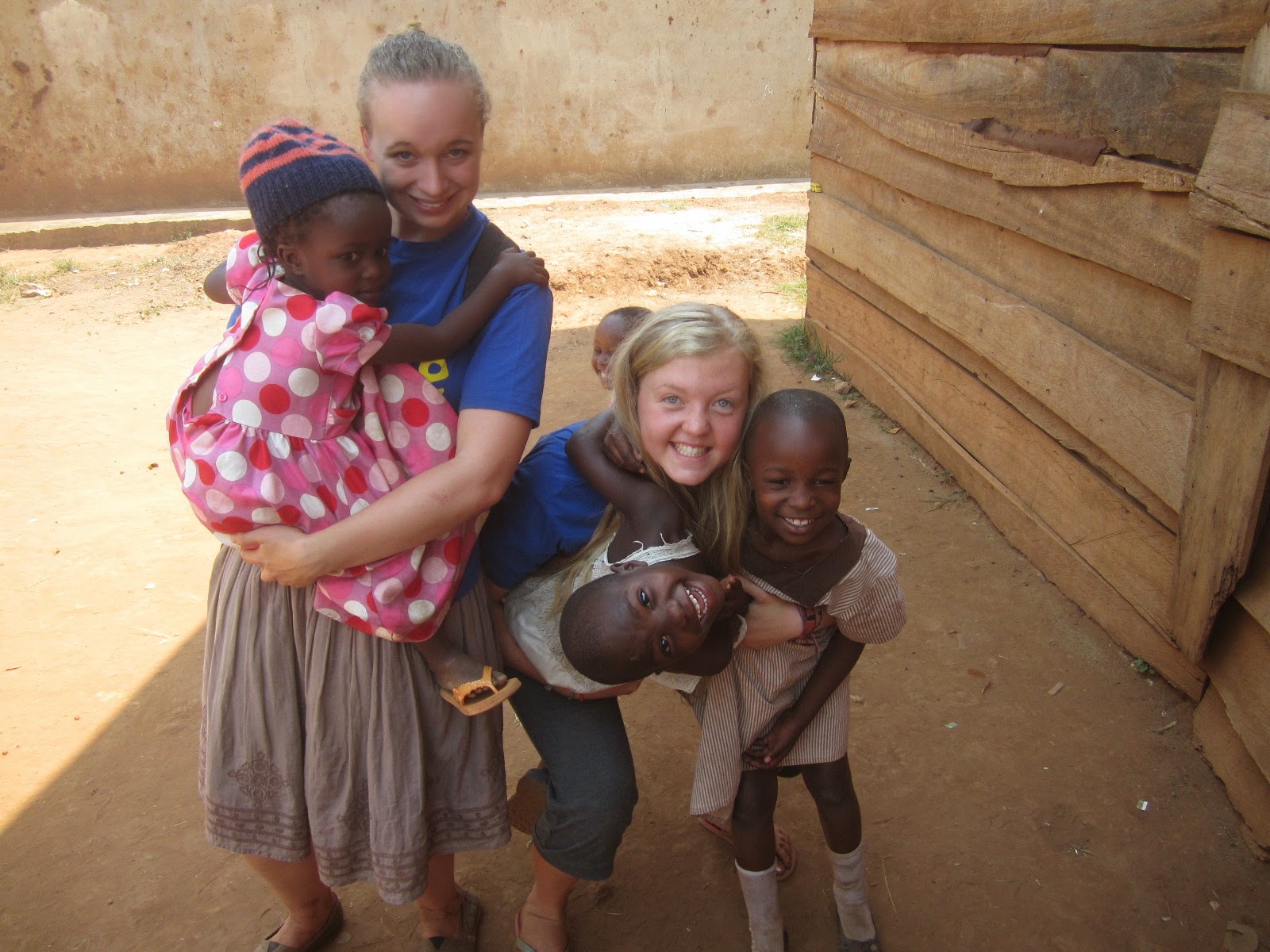












.JPG)
.JPG)
.JPG)
.JPG)

.JPG)

.JPG)
.JPG)
.JPG)












